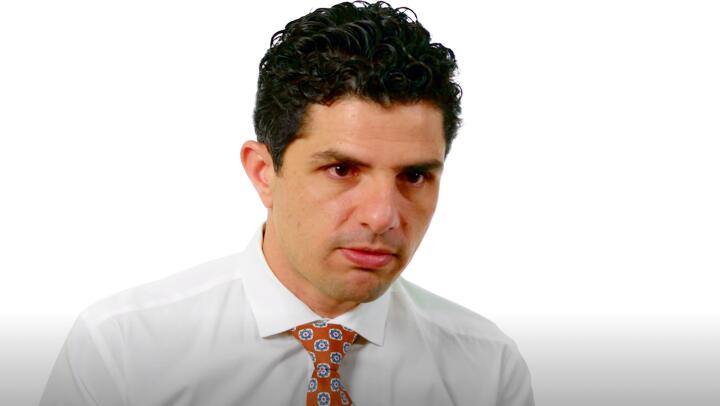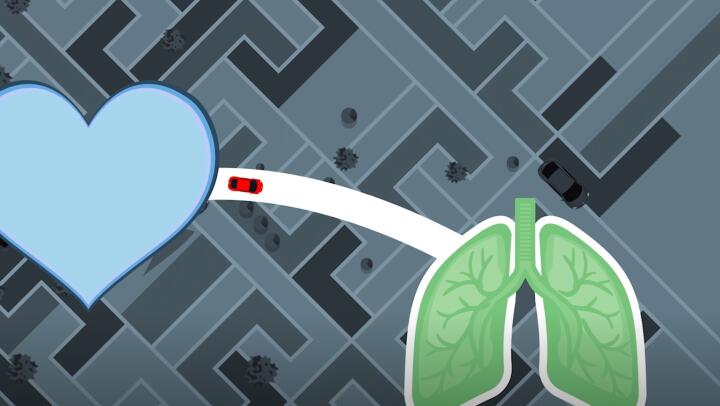What is a heart valve disorder?
As blood flows in and out of the heart, it passes through four valves: mitral, aortic, tricuspid and pulmonary. These tissue flaps push blood from the small chambers of the heart (atria) into the large chambers (ventricles), and also direct blood flow out of the ventricles into the rest of the body. When the valves are working correctly, they prevent blood from flowing backwards. However, valve damage or disease can disrupt blood flow in several ways.
The most common types of valvular heart disease are:
Regurgitation, which is blood flowing backwards, such as from a large chamber to a small chamber
Stenosis, which makes the valve stiff and restricts blood flow through the valve
Atresia, a condition usually present at birth in which a heart valve lacks an opening altogether
Heart valve problems more commonly affect the mitral valve (in the form of mitral valve prolapse, which causes regurgitation) and the aortic valve (often in the form of stenosis, which restricts the amount of oxygenated blood flowing to the body’s tissues), but valve disorders also can cause pulmonic stenosis and tricuspid regurgitation.
Heart valve disease can affect anyone of any age. Babies can be born with malformed valves, such as a bicuspid aortic valve. In this congenital heart defect, the aortic valve has only two tissue flaps instead of the usual three. Bicuspid aortic valve can lead to aortic regurgitation. In some cases, a congenital heart valve defect may not cause problems until later in life. Other heart conditions can also cause valve problems.
Many people with heart valve disorders do not experience symptoms. Instead, a doctor diagnoses the condition when he or she hears an abnormal heart sound called a murmur. A heart murmur is not necessarily dangerous, even if it’s due to a heart valve defect. When people do develop symptoms related to valvular disorders, they often experience heart palpitations, fainting, or dizziness. If you experience any signs of a heart condition, you should seek medical care. Left untreated, valvular disorders can lead to complications like stroke.
What are the symptoms of a heart valve disorder?
Heart valve disorders cause characteristic sounds in the heart. Your doctor will notice these murmurs when listening with a stethoscope. In fact, each type of valve problem produces a distinctive murmur.
Common symptoms of heart valve disorders
Many people never experience symptoms related to a heart valve problem, though the possibility of symptoms increases with age. Symptoms of a valve disorder may include:
Heart palpitations (irregular heartbeat, racing pulse, feeling like your heart is skipping beats)
Dizziness
Signs and symptoms related to heart failure (a primary cause of valvular disease), including unexplained fatigue, shortness of breath with exertion or when lying down, or routine swelling of the legs and feet
What causes heart valve disorders?
Problems with the valves of the heart can be present at birth (congenital) or develop later in life. Many factors can cause heart valve disorders including:
Other heart disorders including heart failure, scarring from a prior heart attack, hypertension, and atherosclerosis of the aorta, which can cause aortic valve regurgitation
Rheumatic fever in childhood, which can lead to mitral valve regurgitation later in life
Infections, including infective endocarditis
What are the risk factors for heart valve disorders?
Anything that increases the chance of developing heart valve disease is a risk factor. They include:
Advanced age
Family history of heart or valve disease
Personal history of infection, such as rheumatic fever or infective endocarditis, or of sharing needles
Personal history of heart attack or heart failure
Risk factors for other heart disease including hypertension, high cholesterol, insulin resistance, or overweight/obese
Reducing your risk of heart valve disorders
Keep in mind that not all people with risk factors will get valvular disease. If you are at risk for valve disease, talk with your doctor at your next physical about ways to reduce your risk. You may be able to lower your risk by:
Eating a heart-healthy diet that is low in fat and salty and smoked foods, and high in fiber and fruits and vegetables
Maintaining a healthy weight
Participating in a regular exercise program
Quitting smoking if you smoke
Treating any existing heart conditions such as hypertension
How is heart valve disease treated?
Valvular heart disease cannot be directly treated with medications. Instead, your doctor will tailor your treatment options to the severity of the problem, your age, and your general health.
Common heart valve treatments include:
Adopting a heart-healthy diet and exercise program; your doctor may recommend a cardiac rehabilitation program to help you
Medicines to treat underlying heart disease, such as hypertension or high cholesterol
Procedures to repair faulty heart valves, such as balloon valvuloplasty to stretch valves narrowed by stenosis
Procedures to replace diseased valves, such as transcatheter aortic valve replacement (TAVR)
Ross procedure, which replaces a diseased aortic valve with the same person’s pulmonary valve and simultaneously replaces the pulmonary valve with a donor valve
What are the potential complications of heart valve disorders?
For many people, a heart valve disorder never produces symptoms or complications during their lifetime. However, in some people, valvular heart disorders can produce serious complications if left untreated. Advanced heart valve disease can cause a heart attack, stroke, or even sudden cardiac arrest. If you have a heart murmur, you should follow up regularly with your doctor to avoid potential serious complications.





















